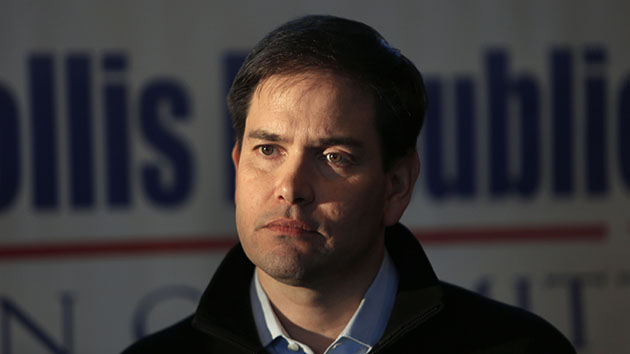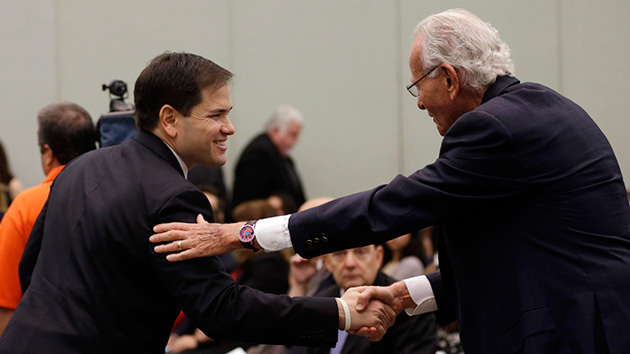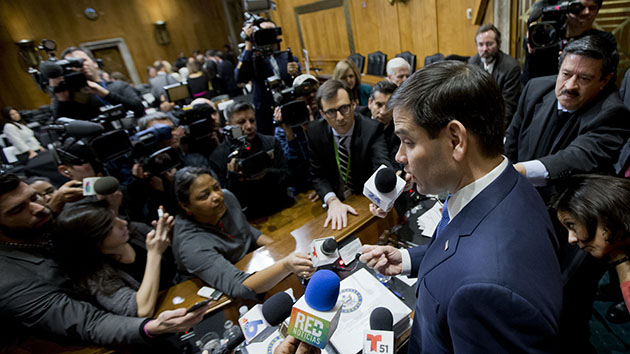When the Florida state Legislature opened its 2007 session, Speaker Marco Rubio, a Miami Republican, took the stage to lay out his priorities for the year. Near the top of his list was a focus on clean energy.
“Global warming, dependence on foreign sources of fuel, and capitalism have come together to create opportunities for us that were unimaginable just a few short years ago,” he said, in a video recording unearthed by BuzzFeed. Rubio predicted that legal caps on greenhouse gas emissions were inevitable, and he argued that Florida should prepare to become “an international model of energy efficiency and independence” and the “Silicon Valley” of clean energy.
Several years later, as a junior senator offering his party’s rebuttal to President Barack Obama’s 2013 State of the Union address, Rubio was singing a different tune. Solar and wind energy “should be a part of our energy portfolio,” he said, but the United States should focus its efforts on extracting coal, oil, and natural gas “instead of wasting more money on so-called clean-energy companies like Solyndra.” (Solyndra was a solar power company in California that failed spectacularly in 2011 after receiving a $500 million grant from the Obama administration. Republicans seized on it as a textbook case of the president’s foolhardy energy agenda, but in reality the company was just badly managed.)
Rubio’s comments since then have been more consistent: He argues that government policies to limit emissions are pointless in the face of rising pollution from developing countries. And, he says, such policies are certain to be “devastating” to the US economy.
He also rejects the notion that scientists are in agreement about the role humans have played in causing global warming. “I do not believe that human activity is causing these dramatic changes to our climate the way these scientists are portraying it,” he told ABC News last May.
On Monday, Rubio is expected to announce his candidacy for president. Check out the video above for a look back at his thoughts on climate change.
This story has been revised.















